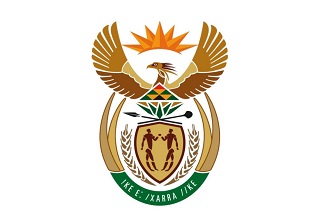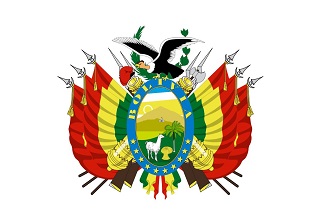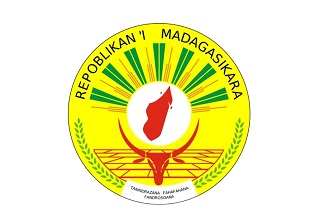Regarding the Inspection and Quarantine Requirements for Shelled Peanut from Nigeria to China
I. Inspection and quarantine basis
(I) "Biosafety Law of the People's Republic of China";
(II) "Law of the People's Republic of China on Entry and Exit Animal and Plant Quarantine" and its implementing regulations;
(III) "Food Safety Law of the People's Republic of China" and its implementing regulations;
(IV) "Import and Export Commodity Inspection Law of the People's Republic of China" and its implementing regulations;
(V) "Regulations on the Supervision and Administration of Entry and Exit Grain Inspection and Quarantine";
(VI) "Regulations on the Administration of Import and Export Food Safety of the People's Republic of China";
(VII) "Memorandum of Understanding on Plant Quarantine Requirements for the Export of Nigerian Peanuts to China between the General Administration of Customs of the People's Republic of China and the Ministry of Agriculture and Food Safety of the Federal Republic of Nigeria".
II. Names of commodities allowed to enter the country
The peanuts (Arachis hypogaea L.) in this announcement refer to shelled peanuts produced in Nigeria, which are exported to China for processing and not for planting.
III. Permitted origin
The whole territory of Nigeria.
IV. Enterprise Registration
Peanut exporters and storage enterprises exporting to China shall be registered with the Chinese Customs to ensure that they meet the requirements of China's inspection and quarantine. The Nigerian Ministry of Agriculture and Food Safety shall submit a list of exporters and storage enterprises to the Chinese Customs in advance. The Chinese Customs shall register after inspection or review, and publish the list of relevant enterprises on its website.
V. Pests of Concern
The following quarantine pests shall not be carried in shelled peanuts exported to China:
1. Callosobruchus maculatus
2. Prostephanus truncatus
3. Trogoderma granarium
4. Contarinia sorghicola
5. Cowpea mild mottle virus
6. Tomato spotted wilt virus
VI. Pre-shipment Requirements
(I) Production Requirements.
1. The Nigerian Ministry of Agriculture and Food Safety shall supervise enterprises that intend to export peanuts to China to establish an integrated pest control system.
2. The Nigerian Ministry of Agriculture and Food Safety shall conduct monitoring and investigation in accordance with relevant international standards and take measures to reduce the occurrence of pests of concern to the Chinese Customs. In each harvest season, provide the Chinese Customs with a monitoring report on viral diseases such as Cowpea mild mottle virus and Tomato spotted wilt virus in the production area in the past year, including the monitoring methods and results, as well as other information required by the Chinese Customs.
3. The Nigerian Ministry of Agriculture and Food Safety should supervise peanut exporting companies to ensure that they have taken screening and other cleaning measures during the peanut collection, storage and transportation process or before shipment to ensure that they meet the requirements of the Chinese national standard "Peanut" (GB 1353) and do not carry plant residues, impurities and dangerous, toxic and harmful weed seeds.
(II) Packaging and transportation requirements.
Peanuts exported to China must be packaged to avoid leakage during transportation. The packaging of shelled peanuts must be clean, unused, and free of toxic and harmful substances. Each peanut package should have at least one label stating the company name and registration number, "从尼日利亚出口到中华人民共和国的脱壳花生" "SHELLED PEANUT FROM NIGERIA TO BE EXPORTED TO THE PEOPLE'S REPUBLIC OF CHINA" in Chinese and English. The transport container must be cleaned.
(III) Product requirements.
Peanuts exported to China should comply with China's import plant quarantine laws, regulations and national standards, and should not carry live pests, especially quarantine pests of concern to China Customs. They should not carry soil, and should not be intentionally added or mixed with other grains and foreign impurities. Nigerian peanuts should also comply with safety and sanitation standards and requirements for human consumption (China's national food safety standards).
(IV) Pre-export inspection and quarantine and certificate requirements.
Before export, the Nigerian Ministry of Agriculture and Food Safety should conduct inspection and quarantine on peanuts to ensure that each batch of shelled peanuts is tested for aflatoxin limits to ensure that they comply with China's national food safety standards (GB 2761). If live pests are found, the goods should be fumigated before export.
For goods that meet the requirements, a phytosanitary certificate will be issued, and the additional statement will state in English: "The consignment is in compliance with phytosanitary requirements described in the MOU of peanut from Nigeria to China, and free from the quarantine pests concerned by China".
VII. Entry Inspection and Quarantine
When shelled peanuts imported to China arrive at the Chinese entry port, the Chinese Customs shall implement inspection and quarantine in accordance with the following requirements.
(I) Document verification.
1. Verify whether they are from registered enterprises.
2. Verify whether the attached plant quarantine certificate is authentic and valid.
(II) Cargo inspection.
1. In accordance with relevant laws, administrative regulations, rules and other provisions, combined with the requirements of this announcement, peanuts imported shall be subject to inspection and quarantine. Those that pass the inspection and quarantine shall be allowed to enter the country.
2. Peanuts imported to China shall be subject to inspection and quarantine at the supervision sites designated by the Chinese Customs.
(III) Disqualified treatment.
1. If there is no valid plant quarantine certificate, they shall be returned or destroyed.
2. If they are from unregistered enterprises, they shall be returned or destroyed.
3. If unapproved genetically modified ingredients are found, they shall be returned or destroyed.
4. If safety and sanitation items such as aflatoxin exceed the limit of China's national food safety standards, they shall be returned or destroyed.
5. If quarantine pests of concern to China Customs listed in this announcement are intercepted, the relevant goods will be allowed to enter the country after effective quarantine treatment. If quarantine treatment cannot be implemented, return or destruction measures will be taken.
6. If other pests are intercepted, they will be handled in accordance with the relevant provisions of the "Law of the People's Republic of China on Entry and Exit Animal and Plant Quarantine" and its implementing regulations.
If the above violations are found, China Customs should promptly notify the Nigerian Ministry of Agriculture and Food Safety, and take measures such as suspending the export of relevant registered enterprises or even suspending the export of Nigerian peanuts to China according to the severity of the violations, until the Nigerian Ministry of Agriculture and Food Safety takes effective improvement measures.
GACC
Sep. 11, 2024




